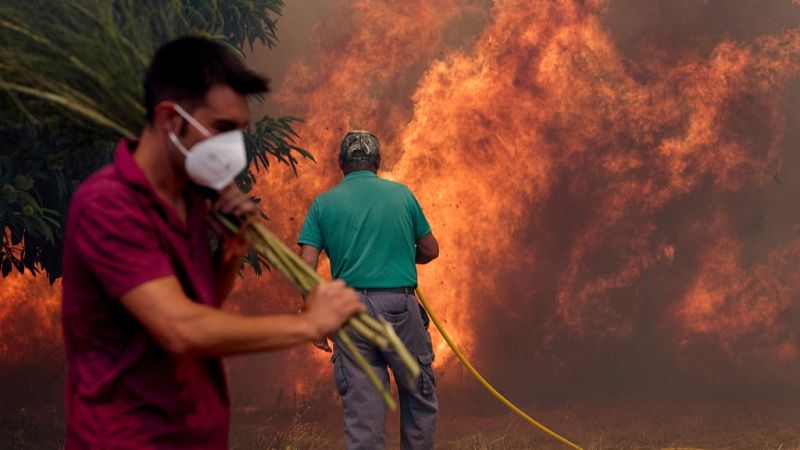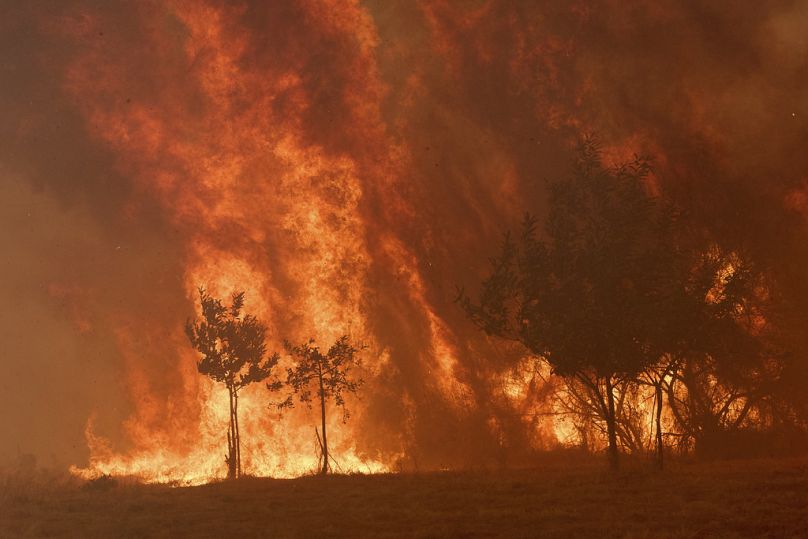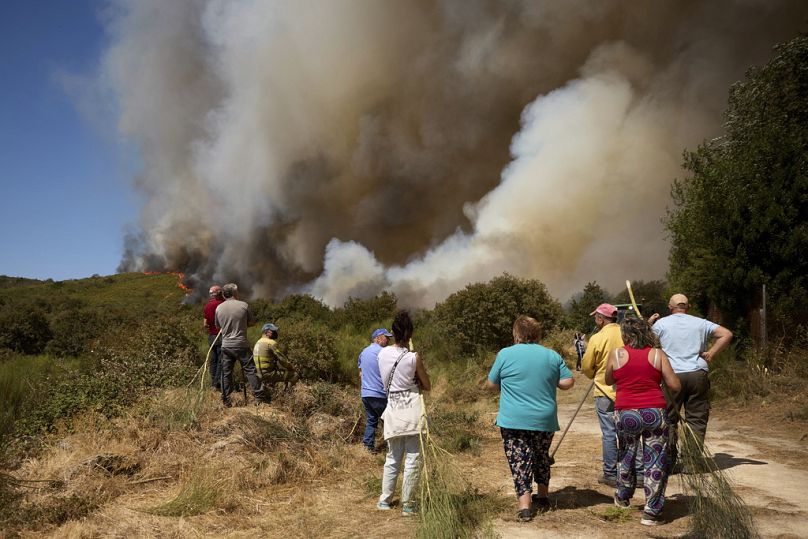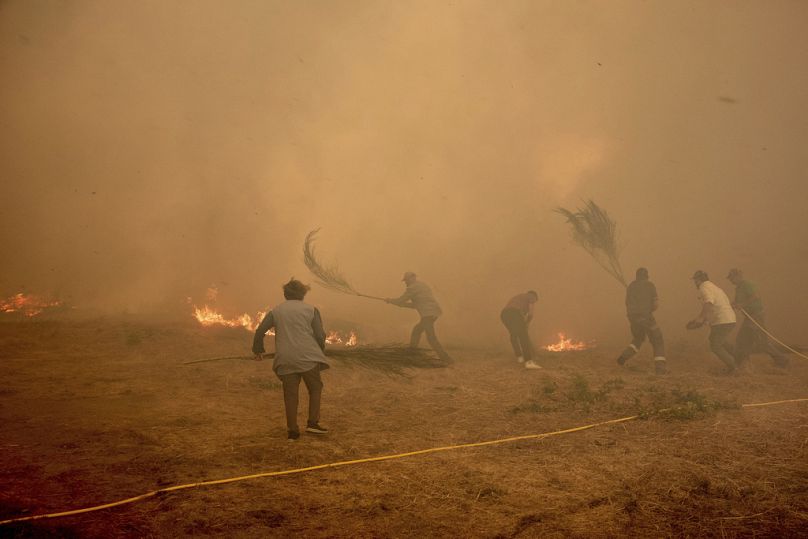Spain battles record fires despite end of heatwave bringing cooler temperature

The Spanish government will declare the areas affected by deadly wildfires that have ravaged much of northern Galicia province as disaster zones.
On Tuesday, Spanish firefighters were still at work for a 10th consecutive day to put out a dozen different fires which have collectively burned close to 4,000 square kilometres of Spanish woodlands.
The fires are some of the country's most destructive fire seasons in recent decades and continue to rage despite temperatures dropping in the Iberian Peninsula following a record-setting European heatwave that has gripped much of the continent's south.
Thousands of firefighters aided by soldiers and water-bombing aircraft are continuing to fight fires tearing through parched woodland that were especially severe in north-western Spain, where the country's weather agency AEMET reported a still "very high or extreme" fire risk.
The fires in Galicia have ravaged small, sparsely populated towns, forcing locals in many cases to step in before firefighters arrive.
Firefighting units from Germany arrived in northern Spain on Tuesday to help fight the blazes, according to Spain's Interior Ministry.
More than 20 vehicles were deployed to help fight an ongoing blaze in Jarilla in the Extremadura region, which borders Portugal.
Spanish Prime Minister Pedro Sánchez visited the area on Tuesday, where he spoke of the unprecedented heat that has fuelled the fires.
Over the last few days, Madrid says Galicia recorded an average daily temperature exceeding 42 degrees Celsius.
"Science tells us, common sense tells us too, especially that of farmers and ranchers, of those who live in rural areas, that the climate is changing, that the climate emergency is becoming more and more recurrent, more frequent and has an ever greater impact," Sánchez said.
The fires in Spain have killed four people this year and burned more than 3,800 square kilometres, according to the European Union's European Forest Fire Information System.
That surface area is more than twice the size of metropolitan London.
Many fires have been triggered by human activity. Police have detained 23 people for suspected arson and are investigating 89 more for alleged involvement in sparking or contributing to the disaster.
In neighbouring Portugal, more than 3,700 firefighters were braving the flames on Tuesday, including four major active wildfires in central and northern parts of the country.
Fires in Portugal have also torched vast areas of land. The European monitor says 2,350 square kilometres were affected by the fires in the country, which have also killed at least two people.
The figure is a five-fold increase over an almost two decade average for this period, ranging from 2006 to 2024.
Europe has been warming twice as fast as the global average since the 1980s, according to the EU's Copernicus Climate Change Service.
Scientists say that climate change is exacerbating the frequency and intensity of heat and dryness in parts of Europe, making the region more vulnerable to wildfires and necessitating urgent action to reverse the deadly trajectory.




